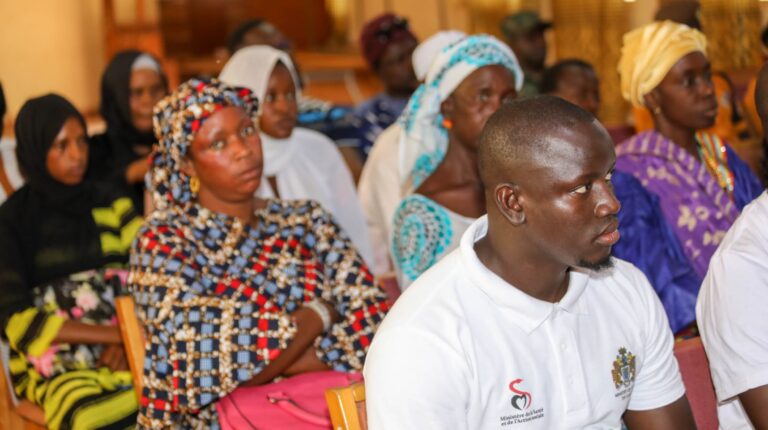“We used to fear the police, now we see them as partners”: dialogue replaces fear in rural Gambia

In the quiet villages of The Gambia’s North Bank Region, a remarkable shift is unfolding—one that is transforming the relationship between civilians and security forces through the power of conversation.
What was once characterized by deep-seated mistrust is now being replaced by dialogue, thanks to a bold initiative by ActionAid International The Gambia (AAITG).
Under its Local Rights Programme 9 (LRP9), the organisation convened a Community Security Bantaba—a traditional West African forum for open discussion—bringing together police officers, military personnel, youth leaders, and elders for face-to-face engagement.
“Citizens must understand the role and challenges of our security services.
In return, the security forces must also be responsive to the rights and needs of the people they protect,” said Omar Trawally, a member of the North Bank Regional Youth Committee.
At the heart of the event was a simple but profound idea: real peace is not imposed—it is built through mutual understanding.
For many in attendance, it was the first time they had spoken to a security officer outside a context of fear or confrontation.
“I now realize that I have a role to play,” said Adama Nyan, a youth leader from Jokadu.
“Reporting suspicious behaviour, educating my peers about drug abuse, and promoting peace are part of my civic responsibility.
I used to think security was just a police issue, but today I changed that.”
Inspector Almameh E. Susoh, Regional Taskforce Commander in Farafenni, agreed that community partnership is vital for sustainable security.
“Civilians are the majority, and we can’t be everywhere at once.
Through collaboration and communication, we can detect and prevent crime early,” he said.
“This isn’t just about policing; it’s about building a safer Gambia together.”
For ActionAid, the bantaba is more than a dialogue session—it is a tool for transformation.
Saikou Darboe, Manager of LRP9, explained that the initiative was born out of growing tension between communities and security personnel.
“We saw the rising tension and misunderstanding between young people, the public, persons with disabilities, and law enforcement.
So, we created a safe space where both sides could listen, learn, and reconnect,” he said.
The results are already visible, he added: “Young people who once feared the police now see them as partners in peacebuilding.
These sessions are not just dialogues—they are seeds of transformation.
And we are committed, inshallah, to sustaining this momentum.”
For Mariama Secka of Ngene Sanjal, the impact is deeply personal. “We all want the same thing—peace.
But for that to happen, we must communicate, collaborate, and commit to understanding each other,” she said.
As ActionAid looks to expand the programme across the country, the message resonates clearly: peace begins with dialogue, and dialogue begins with trust.
“This dialogue is not charity; it’s our right,” said Omar Trawally.
“Peace starts with understanding, and understanding begins with conversation.”
About The Author
dailymailafric
I am an avid African news observer, and an active member of Daily Mail Africa.
I’m Passionate about staying informed on diverse topics across the continent,
I actively contribute to publishing on political, economic and cultural developments in Africa.



